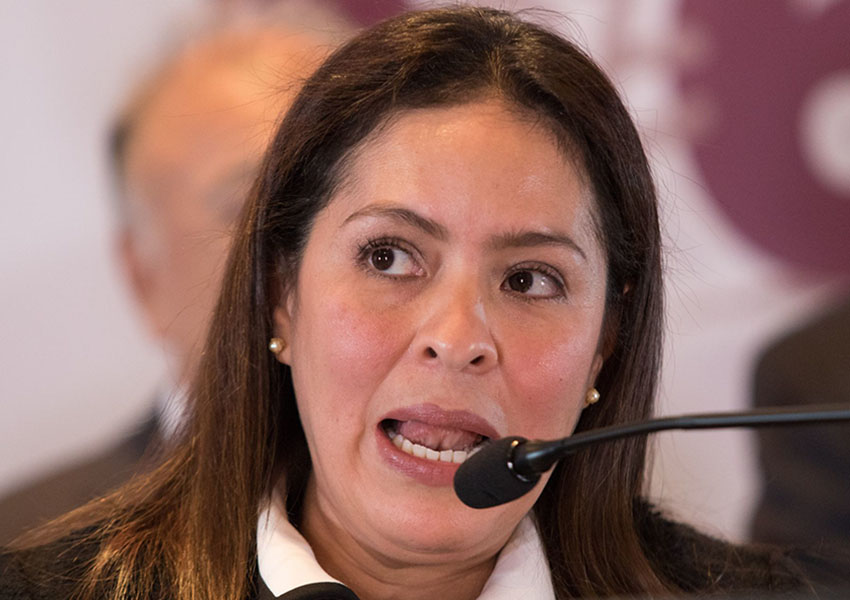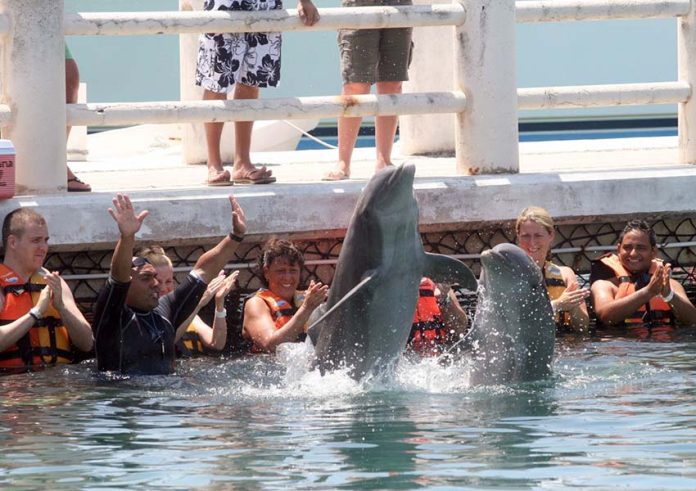The Chamber of Deputies modified the General Wildlife Law to prohibit the use of marine mammals – such as dolphins, seals, and otters – as part of entertainment shows or activities not related to scientific research or educational reasons. If the objective is not the reintroduction, repopulation, or translocation of the specimens, intensive breeding is also banned.
The amendment was promoted by deputy Karen Castrejón Trujillo, a member of the Green Party (PVEM), and president of the Environment and Natural Resources Commission. She explained that the modification seeks to terminate the forced reproduction of marine mammals with current authorizations remaining in place until the specimens’ death.
The owners of any marine mammal will have 90 days to present an inventory as well as changes to their management plan necessary for compliance with the new law. These updates must be submitted to the Ministry of the Environment and Natural Resources, SEMARNAT and, the Federal Office for Environmental Protection, Profepa. Failure to do so will result in the revocation of the permits to keep the mammals.
In the meantime, the president’s office has a maximum of 365 days after the law’s effective date, to start the process of issuing and updating all administrative regulations necessary for compliance with the wildlife law.

In its statement of reasons, the reform mentions that while it is focused on marine mammals, the main drive behind it was the dolphins, whose subsistence has been “distorted” to make the public believe that their captivity for recreation is a means of protecting their species.
Even if the law bans the capturing of dolphins, there are enough specimens to be breed in captivity, says the statement, “without any reason that explains the need for those who do it to condition an animal to live in captivity for life.” The new law also recognizes the impossibility of reintroducing some of the mammals back to their natural habitat – particularly those who were born in captivity and who “didn’t even had a chance to experience freedom”.
According to Forbes México, there are about 3,000 captive dolphins in the world, of which 250 are in Mexico. The revenue from captive dolphin shows ranges from US $400,000 to $2.2 million per animal.
Deputy Castrejón Trujillo remarked that “it is inhumane to continue subjecting these marine mammals to the stress caused by being part of a show for which they must modify their natural behavior.” In that sense, she said that the new law reflects the demands of environmental activists who have been fighting for years to end the use of dolphins for profit.
The new law follows the lead of 2015 legislation banning the use of wild animals in circuses. At the time, such a law created a relocation problem for rescued animals, with many ending up in the controversial Black Jaguar/White Tiger big cat sanctuary on the outskirts of Mexico City, run by a charity with offices in California and in Mexico. It was shut down in July by the environmental agency Profepa after the agency learned that the resident animals were suffering from starvation and extreme neglect.
With reports from Forbes México and Infobae
